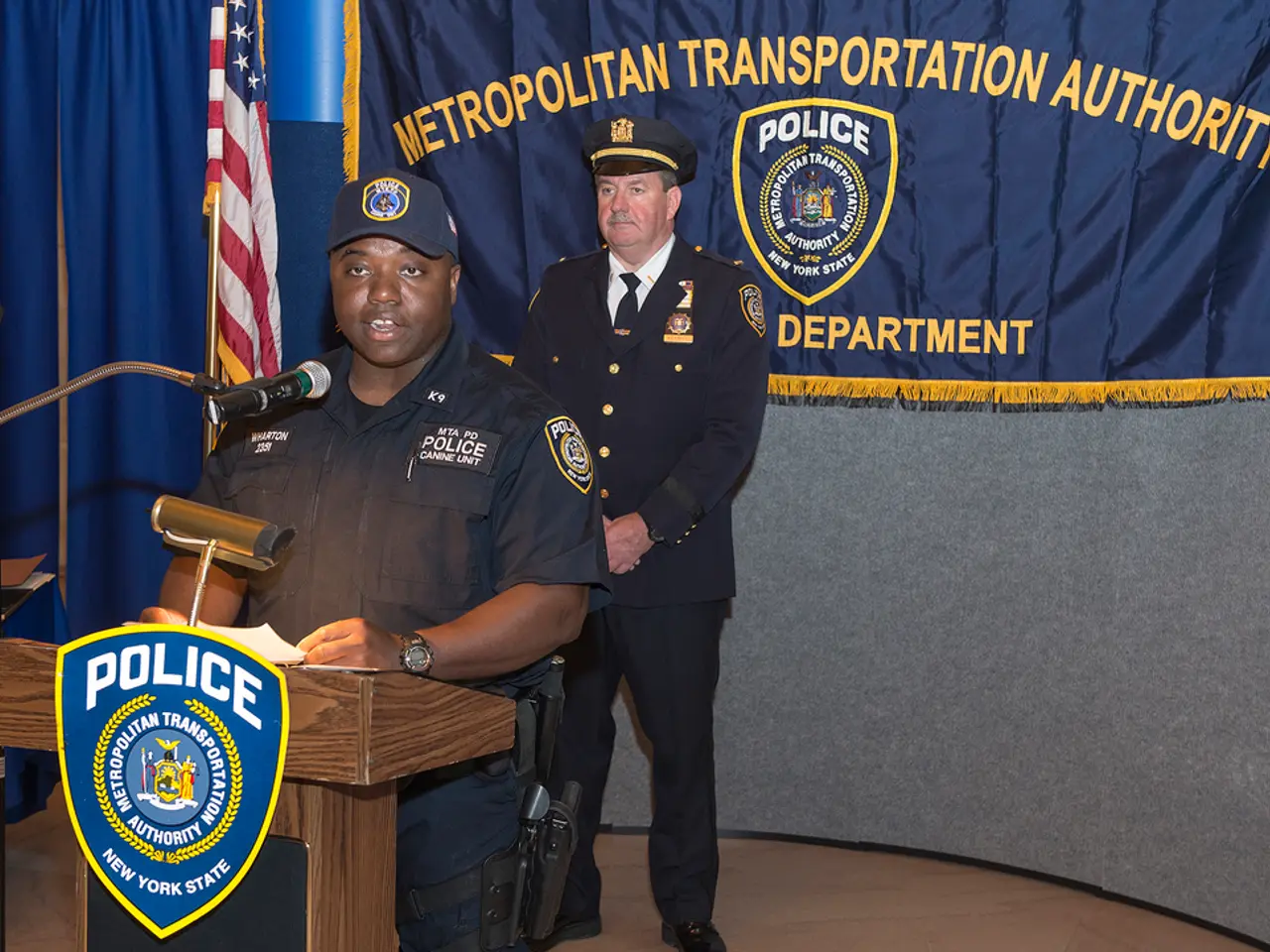Washington DC braces for deployment of National Guard at Trump's command
In the final months of his presidency, Donald Trump took unprecedented actions to address perceived crime issues in Washington D.C., deploying 800 National Guard troops and asserting control over the local police force. However, these actions have sparked a series of legal battles and constitutional concerns.
Washington Democratic Mayor Muriel Bowser acknowledged a "spike" in crime in 2023 but pointed out a sharp drop in the past two years, with homicides dropping 32% between 2023 and 2024, and a further 12% so far in 2025 compared with last year. Despite this, Trump stated that Washington is experiencing "complete and total lawlessness."
Trump's actions primarily rely on two statutory authorities: 32 U.S.C. § 502(f), which allows the president to deploy National Guard forces in D.C. without mayoral consent, and the 1973 Washington D.C. Home Rule Act, which permits the U.S. president to take temporary control of the city’s police force for up to 30 days, with congressional authorization required thereafter.
The use of 32 U.S.C. § 502(f) remains a legal case of first impression, as no federal court has ruled on the legality of this interpretation, and there is no established legal precedent or clear guardrails for the use of this provision to deploy out-of-state Guard troops in D.C. The use of the 1973 Washington D.C. Home Rule Act to justify Trump's federal takeover of D.C. police amid declared "crime emergency" conditions has raised questions about the legitimacy of this pretext.
Under D.C. Code § 49-103, the president may deploy the D.C. National Guard to assist law enforcement to respond to riots or violent disturbances, but this requires a request from the D.C. mayor, the U.S. marshal for D.C., or the national capital service director. There is doubt that such a request came from the mayor during Trump's deployments, making it more likely the U.S. marshal initiated it.
Trump’s broad use of federal military and law enforcement agents, including National Guard, federal agents from various agencies, and attempts to replace D.C. police leadership, raised significant legal and constitutional concerns. These actions have been challenged as potential violations of the Posse Comitatus Act, which limits the military's role in domestic law enforcement, and as infringements on the 10th Amendment, which reserves powers to states and local governments.
Ms Bowser expressed concern about the National Guard enforcing local laws, as it is not their primary role. In response to a request for comment on Monday, her office did not immediately respond. The Democratic governor of California, Gavin Newsom, is challenging the deployment of the National Guard in court, with a trial scheduled to begin in San Francisco on Monday.
In summary, while Trump invoked statutory authorities (32 U.S.C. § 502(f) and the DC Home Rule Act) to justify his deployments and police takeover, these legal bases remain contested, lack clear judicial precedent, and have prompted ongoing legal challenges concerning executive overreach, separation of powers, and limits on military involvement in civilian policing.
[1] Legal challenges to Trump's deployment of National Guard in D.C. raise questions about executive power. (2020). The Washington Post. Retrieved from https://www.washingtonpost.com/politics/2020/06/02/legal-challenges-trumps-deployment-national-guard-dc-raise-questions-about-executive-power/
[2] Trump's takeover of D.C. police raises constitutional concerns. (2020). The New York Times. Retrieved from https://www.nytimes.com/2020/06/02/us/politics/trump-dc-police-takeover.html
[3] Trump's deployment of National Guard in D.C.: A legal analysis. (2020). Lawfare. Retrieved from https://www.lawfareblog.com/trumps-deployment-national-guard-dc-legal-analysis
[4] Trump's use of military and law enforcement in D.C.: A constitutional analysis. (2020). The Brookings Institution. Retrieved from https://www.brookings.edu/research/trumps-use-of-military-and-law-enforcement-in-dc-a-constitutional-analysis/
The legal challenges surrounding Trump's deployment of National Guard in Washington D.C. raise questions about policy-and-legislation, politics, and general-news, as they involve careful analysis of the Posse Comitatus Act, the 10th Amendment, and the roles and powers of the executive branch, states, and local governments. These debates are further complicated by the unprecedented actions taken by Trump in war-and-conflicts, such as asserting control over the local police force and deploying National Guard troops, which have sparked a series of legal battles and constitutional concerns. (1, 2, 3, 4)







